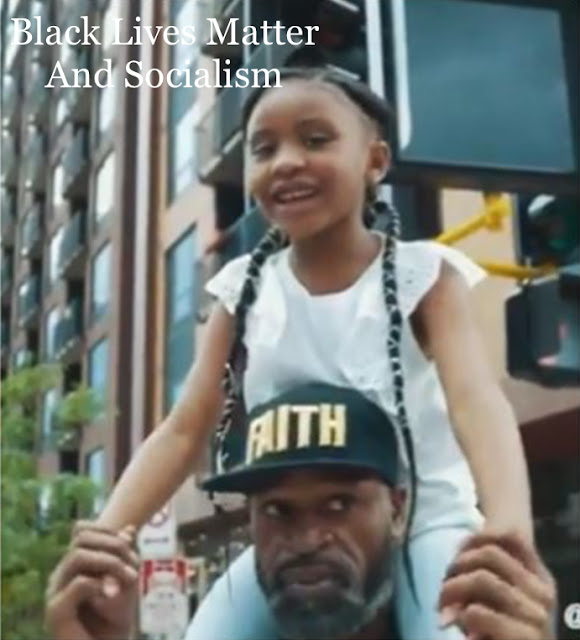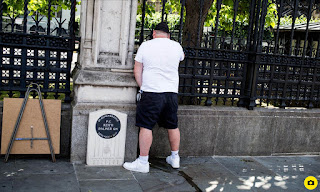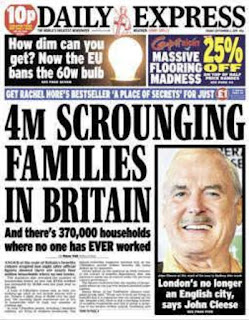The sacking of Rebecca Long-Bailey as Shadow Education Secretary is the latest in a long line of attacks on the left in the UK by supporters of the Israel state. The battleground over support for Israel was a key part of the attacks on Jeremy Corbyn who was a little too keen on Palestinian rights for some both inside and outside the Labour Party. Allegations of anti-Semitism have dogged Labour since 2015 when, under Ed Miliband’s leadership, Labour openly declared their support for a two-state solution to the ongoing Israeli-Palestinian conflict.
Rebecca Long-Bailey made the mistake of retweeting an interview with left wing actor Maxine Peake. The interview was far reaching and at one point Ms. Peake made the following unguarded comment:
“Systemic racism is a global issue, The tactics used by the police in America, kneeling on George Floyd’s neck, that was learnt from seminars with Israeli secret services.”
This, apparently, is a Jewish conspiracy theory. But is it? First, it doesn’t mention Jews, but Israel. Second, it is very specific which Israeli’s – secret services. Nobody denies that Israel has a secret service, so is it a conspiracy theory to suggest they teach American police? The existence of exchanges between Israel and a number of police forces, including American, is well known, so what is in dispute here is the particular allegation about kneeling on a suspects neck.
Whether this was one of the tactics discussed is disputed, but what is not disputed is that American police have received training from the Israelis. Amnesty International have demanded that these are stopped. What is also not disputed is that Israeli soldiers routinely use a knee on the neck of Palestinians. Did the US police learn from the Israeli army or vice versa, or was some third party involved? These are the kind of forensic details that the current Labour leader is supposed to excel in. But, on this occasion there was no need for him to deploy his renowned forensic skills, for it was not the accuracy of the statement that was in dispute but it’s underlying intent. Maxine Peake, it turns out, was guilty of anti-semitism. And, by association, so was Rebecca Long-Bailey. In such circumstances, Sir Keir clearly had no choice.
This accusation by a well known thespian and Labour supporter had caused such distress to Jewish people in the UK that he had no choice but to distance himself from accusations of having a backbone, sorry I mean of being soft on an anti-semitism, and no choice but to kick Rebecca Long- Bailey off his Shadow Front Bench.
Whether or not there was an underlying intent to cause distress to the so-called "Jewish community" is difficult to assess. Certainly Maxine Peake has not, as far as I can tell, exhibited anti-semitic tendencies in the past. Besides, the statement itself appears to be a criticism of the Israelis in training American police officers, rather than a statement intended to cause distress to a particular ethno-religious group. In as much as many Jewish people are distressed at any criticism of Israel it could be argued that such criticism is, by definition, anti-semitic. In essence, this has become the de facto position of the Labour leadership.
This is a major shift in the party's foreign policy and makes null and void the motion passed at last year's conference in support of Palestinian rights. The motion was accompanied by Palestinian flag waving which showed the depth of feeling this issue arouses amongst Labour activists.
The text of the motion begins by noting:
· Recent actions by US and Israeli administrations are destroying prospects for peace in Palestine – by recognising Jerusalem as Israel’s capital, stopping funding UNRWA for Palestinian refugees, the continuing siege of Gaza, expanding illegal settlements and announcing plans to annex illegally large areas of land occupied in 1967.
The motion continued:
· Labour’s ethical foreign policy must prioritise Palestinians’ rights to freedom, justice and equality, including by applying these principles based on international law to all UK trade with Israel.
Conference resolved to:
· To oppose any proposed solution for Palestinians, including Trump’s ‘deal’, not based on international law and UN resolutions recognising their collective rights to self-determination and to return to their homes.
According to the Times of Israel this motion could be summed up as:
“UK Labour overwhelmingly backs anti-Israel agenda.”
And, herein lies the point. Maxine Peake and by extension, Rebecca Long-Bailey were not guilty of anti-Semitism, but of being critical of Israel. Criticism of Israel particularly where the Palestinians are concerned, is considered by the pro-Israel lobby as anti-Semitic. They are, so it is assumed, likely to cause distress to the "Jewish community " , as if all Jewish people belong to one homogenous whole, an undifferentiated view of a diverse group of people which it has always struck me as very close to being anti-Semitic itself.
So, what is Sir Keir playing at? Clearly this has little to do with anti-Semitism, and plenty to do with anti-leftism. This is the final nail in the coffin of the unity phase of the right-wing take over of UK Labour. Most of us never believed the right's calls for unity seeing them as code for "shut up and do as you're told!”, but since the ousting of Jeremy Corbyn it has been the background noise as the left have been marginalised.
The inclusion of Rebecca Long-Bailey in the Shadow Cabinet was seen by some as evidence that Sir Keir was sincere in his attempts to move beyond factionalism. In retrospect it probably told us more about RLB than Sir Keir. When every other left-winger was purged from any position in a Shadow Cabinet containing over half the Parliamentary party, it could only have been RLB's ego and ambition that allowed her to stay. Sir Keir was clearly just waiting for an opportunity to show the establishment, whose support he believes he needs in order to stand any chance of winning an election, that his leadership was a clear break from Jeremy Corbyn.
The sacking of RLB is not just a clearing out of a left-winger, it is a symbolic act aimed at the remaining left membership. It says, as clearly as if it was printed on a placard "You are not wanted here." By picking Israel as the defining issue Sir Keir has ensured that he has, through a single act, demonstrated his loyalty to a powerful and influential lobby and ensured the speeding up of a process by which the members who joined to support Jeremy Corbyn will leave. From the Starmer camp's perspective this was a win-win situation. Any backlash from the members could only play into the hands of the party's right who are anxious to rid the party of a membership who are not only to the left of them, but appear as a baying mob demanding mandatory reselection. If they were honest they would admit that anti-Semitism always has been and remains a minor problem in the Labour Party, but members demanding a democratic say in the party's policies remains anathema to a group of people who regard being an MP as an entitlement not a privilege.
So, is this the end for the left in the party? In many ways it has changed very little. No group of MPs is contemplating the possibility of leaving and setting up an alternative party. There is no grouping outside of the party capable of challenging the party electorally. So talk of leaving the party to form a new party of the left is just that - talk. I am not saying that people should stay in a party they do not feel comfortable remaining a part of. But, if anybody is under the illusion that a couple of hundred people can quit Labour and form an alternative they are in for a rude, and disappointing, awakening. Those who leave will either become part of a smaller grouping or remain unaligned. Neither are the end of the World, but they are some distance from the mass support the Labour Party still enjoys.
The truth is that the right now control every part of the Labour Party and the left can only remain to be an irritant. It is not just that Sir Keir’s Party will be pro-Israel, but more importantly enthusiastically pro- capitalism, and anti-trade union. The shift away from the social democratic policies of Jeremy Corbyn's era to neo-liberal Tory-lite policies which may well make Blairism appear communistic, is not likely to take long. Sir Keir is determined to win back voters he believes were lost by policies that were too left-wing, and by appealing to an establishment media that loathed Jeremy Corbyn on a personal, as well as political level.
Inside the party what is left of the left will have to exist in marginalised pockets that continue to argue for policies that redress the systematic inequalities that characterise British society. Whether we can win those arguments will be determined by factors external to the Labour Party. If, however, the left makes support for Palestinian rights the ultimate test of the party’s commitment to social justice we will find ourselves driven out. The losers will be both the Palestinian people who will lose any advocacy within the mainstream of British politics; and the poor and marginalised in British society who will continue to be acted on rather than acted with. Ultimately, in a polity that encourages a passive apoliticism the left is still a minority. Not because the right is actually a majority, though they do control the media and most of the economy, but because “common sense” tends to be right wing leaning. Factional battles in the Labour Party may seem a long way from the sacking of a Shadow Cabinet Minister, but in truth that is the deeper meaning of the faux outrage over a throw away comment by an actor in an interview in The Independent.




















